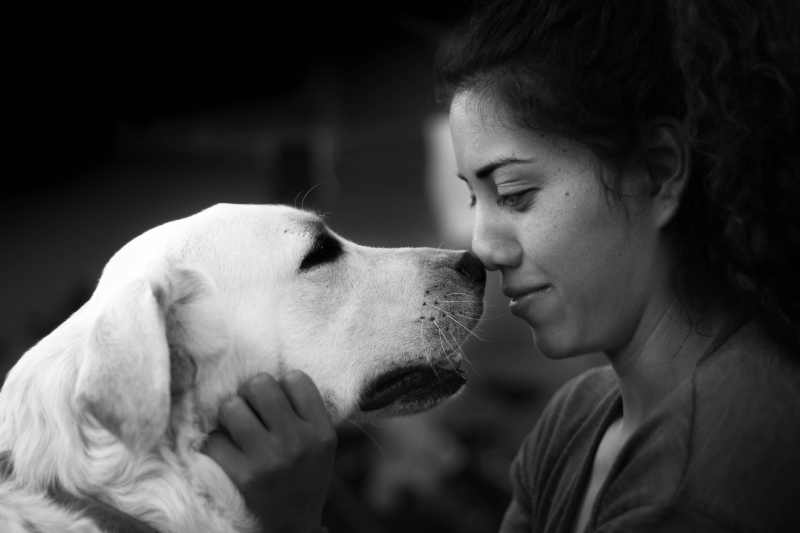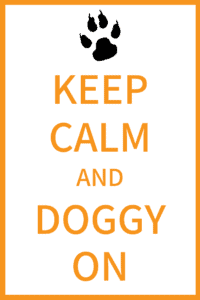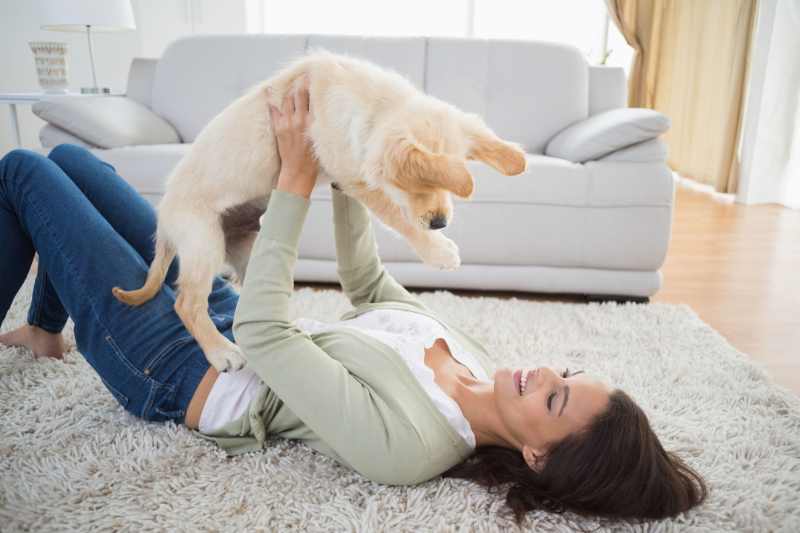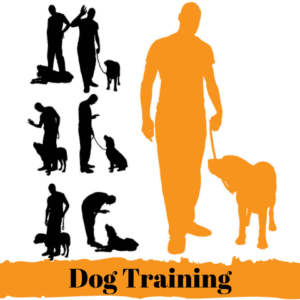In this article we give ten dog training tips to help you successfully train any puppy or dog.
Whether you are a first-time dog owner or have owned a dog or dogs for some time, the following dog training tips will be still useful.
However, before we get into that we thought it worth mentioning, for those people who have not previously had the pleasure of owning a dog, that owning a dog requires a commitment of time, money, emotion, love and affection.
And on top of that, there is the time, money and emotion needed to train your dog.
Unfortunately, many current dog owners forget that owning a dog requires an ongoing commitment – no matter how busy THEIR lives have become. PLEASE don’t become one of these dog owners!
Respect Is Earned Not Given
You need time to build a relationship with your dog; without a good relationship, your dog will not respect you.
If your dog does not respect you and see you as the pack leader, then you will always have obedience issues.
S/he won’t come when called will probably jump up on people; your neighbors will be complaining all the time because your dog barks day and night. All of which can lead to your dog being disciplined unnecessarily.
When a dog owner becomes frustrated by not being able to control their dog, it’s the dog that bears the consequensest. The dog gets left at home more, doesn’t get walked or played with as often.
All because the owner didn’t have time to bond and train the dog effectively.
10 Dog Training Tips
If you want to successfully train your dog to come when called, to sit and stay on command, to behave well in mixed company or shake hands then the following dog training tips should make this an effortless task.
If you don’t consider these training tips you are likely to fail. And failure to teach a dog the basic disciplines usually does not end well.
You and your family will need to put up with an unruly dog, the
1 – A Lesson In Unconditional Love

Being totally committed to your dog includes returning the unconditional love that your dog will show towards you. No matter what your dog does to mess up your day, love your dog unconditionally.
Your dog will love you unconditionally.
Even after you are late home and haven’t fed him/her or refreshed their water bowl. Or even if you have not taken them for a walk all week, because you are busy with YOUR life.
A dog will love you unconditionally, even after you scold them for merely being a dog, doing things like burying their bone under your prized Rosebush up routing it in the process. Or they keep digging a hole in the lawn to avoid the heat/cold.
2 – Patience and Persistence
Patience and persistence are essential attributes, whether you are trying to train a young puppy some basics or teach an old dog new tricks – both require time and a lot of patience.
The good news is that dogs have an inherent desire to please their master. And as long as you have established yourself as the leader of the pack and set aside the time for training, you should be able to train your puppy/dog to do whatever you want them to do.
The first, and I think, the most important dog training tip is to be patient.
Secondly, do not let your impatience or frustration get the better of you to the point your dog become confused about what it is that you want them to do.
And thirdly, you should never give up. If you find yourself getting frustrated, or even angry at your dog, then stop the training session immediately and come back to it later.
Short training sessions of ten to fifteen minutes 3 to 4 times a day are better than solid half hours blocks once a day. It’s worth noting that most dogs have an attention span of about fifteen minutes, so there is no point in trying to force it past this point.
3 – Stay Positive and Stay Calm

Dogs pick up on their masters’ emotions and will respond accordingly. If they sense that you are frustrated or angry, it will confuse them about what it is that you want them to do.
They will also be a little apprehensive about your commands and believe it or not they will over think your commands, and therefore probably get it wrong.
So it is essential to stay positive, stay calm and don’t raise your voice – shouting at them will not improve the situation. And remember to reward your dog with treats for EVERYTHING that they do correctly.
The next thing to consider is the mood of your dog, is s/he calm or are they all hyper or excited? One of the things that I found to work well was to take our dog for a short walk before training to ensure he was calm.
Dogs are almost always happy to go for a walk and it often gets rid of any excess energy, because if your dog is over excited it can interfere with their training – they are just too excited!
4 – Prepare Homemade Dog Treats

As I mentioned earlier, dogs inherently have a desire to please their master and will do whatever it takes. While you can show your pleasure in many ways, when training a dog nothing works better than a few treats.
Whenever you are trying to teach a dog new things, ALWAYS have a pocket full of treats – if you run out, stop the training session until you have more.
The treats could be plain old dog biscuits, but you will find that they respond better to receiving something special. Something they only get while training.
See our article Homemade Dog Treats Are Cost Effective, Quick and Easy to Make for a homemade liver treat that dogs love.
Mix it up a bit as well, don’t always have the same treats. And the treats don’t always have to be food related. Depending on your dog, they may be just as happy playing fetch for few minutes.
Knowing what makes your dog happy certainly helps when trying to train them.
5 – Timing is Everything
Of all the dog training tips to remember this is one could be the difference between success and failure. Dogs have a short memory!
What this means is that if you are going to reward, or discipline, your dog do so immediately. Don’t do it five minutes later, do it quickly.
If your dog completes the task successfully, then reward them straight away. If s/he does something that requires punishment, punish them right away – and not learning a new command is no grounds for punishment!
If the reward, or punishment, is delayed they won’t know what it was for and become confused. A confused dog is an unhappy and less obedient dog!
For example; on returning home you can see that your dog has been digging in the garden sometime while you were out. Your dog enthusiastically comes running to greet you, and you dish out some form of punishment. But what was the punishment for?
Did you just punish them for running up to welcome you home? That is what they are likely to think.
Another mistake that a lot of dog owners make is punishing their dog after calling them. Calling your dog and then punishing them when they come – followed your command – could make them wary about coming when called.
You can see how your dog will quickly get confused if the reward or punishment happens at a later time.
Additionally, choosing the right time of day to train your dog is equally important.
Don’t try to train your dog at a time they normally have a nap or immediately after a meal. It is not a good idea to try and train a dog on a full stomach, as they will lack the required energy, so wait for an hour or so after your dog has eaten.

6 – Be Consistent
We may have placed this at number six, but it’s probably in the top three best dog training tips. If you are not consistent, you are likely to get very mixed results.
Following on from the section above, you must also be consistent with your punishment and reward.
An excellent example of this is no consistency in punishing your dog for doing that same thing at different times or situations.
For example; let’s say you punish your dog for jumping at you when you are in your good clothes, but you don’t when you are in your gardening (or more casual clothes). Your dog doesn’t know the difference and will get confused.
So stay consistent and say no to any uninvited jumping up. Teach your dog that they can only jump up on command and at no other time.
Consistency in the way you treat your dog and your attitude toward them is crucial to their happiness and yours, as they will be better trained and responsive.
7 – Have Fun
Don’t make every interaction with your dog about training them to do something. Divide your time between chilling out – walking, playing or just being together – and training sessions.
Make it clear for them to understand what you are expecting from them. You may consider setting aside a special leash and area of your home that you only used when you want to train them.
So whether you are just chilling out with your dog or trying to train it, make it

8 – Know and Understand Your Dog
Much like humans are all unique – no two are the same – so are dogs.
Therefore, to get the best out of your dog, it pays to take a little time to get to know them.
Are they a morning dog or an afternoon dog – what time do they
There is no point trying to teach them to sit or fetch when all they want to do is nap!
Likewise, do they respond to treats or dog games such as fetch, because you don’t always need to reward your dog with treats!
They may be just as happy to be patted or tummy rubbed. Find out what makes your dog happy.
9 – Train Your Dog Free From Distractions
Try to set aside an area of your home that you only take your dog when you want to train them.
Ideally, this place will be free from distractions – because as well all know, dogs can be easily distracted.
They will soon realize that they are here to work – to please you. And that if they perform as expected, then they will receive treats.
By removing any distractions – other pets, children, TV, etc – your dog will remain focused on you and your commands.
10 – Don’t Punish Your Dog If They Are Not Well
If your dog is not in good health, do not punish them for “messing up” inside the house.
The same goes for any out of character behavior, such as growling or showing signs of aggression.
If you have not already done so, take your dog to a veterinarian and get treatment right away.
Additionally, don’t try to train your dog if they are unwell. A dog that is not feeling a hundred percent well will struggle to maintain focus on what you want them to do.
We hope that you have found these dog training tips useful and if you felt these made a difference to your experience training your dog please let us know – use the Contact form.
Related Articles
How To Be The Pack Leader
Training Your Dog With a Muzzle
How To Stop Your Dog Barking
How To Crate Train Your Puppy
How to Stop a Puppy From Biting and Mouthing
Recent Posts
Summer Safety Guide for Dog Owners: Keeping Your Canine Companion Cool and Comfortable
Summer brings warmth and sunshine, inviting humans and their canine companions to enjoy the outdoors. However, the rise in temperature also increases the risks of overheating and heat-related...
The Importance of Heat Safety for Dogs: Understanding Heatstroke and How to Prevent It
Heatstroke is a serious condition that can occur in dogs when their body temperature becomes dangerously high, typically as a result of prolonged exposure to high temperatures or excessive physical...


